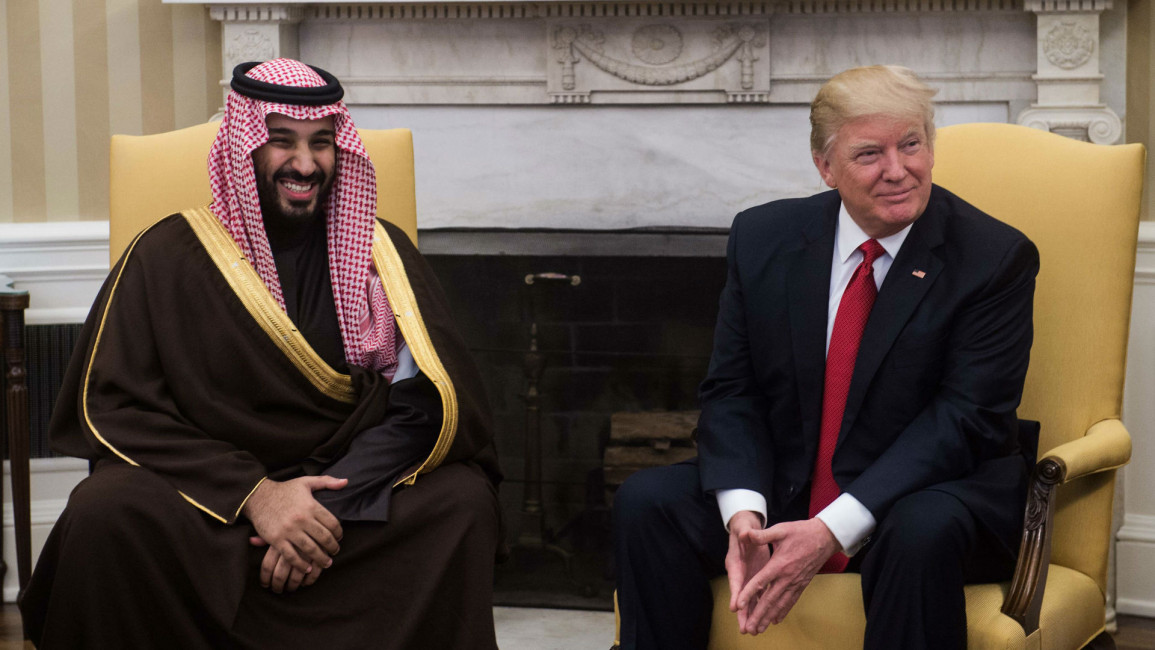Trump meets top Saudi prince as Yemen war rages
US President Donald Trump hosted Saudi Arabia's powerful Deputy Crown Prince Mohammed Bin Salman al-Saud at the White House Tuesday, for talks expected to focus on the economy and rolling back Iranian influence in the Middle East.
Trump welcomed the young prince to the Oval Office, as both countries expect to improve ties that were frequently strained under Barack Obama's administration.
Saudi Arabia is likely to welcome Trump's harder-line on its arch-rival Iran and there is likely to be less friction over Riyadh's war against Houthi rebels in Yemen.
Saudi Arabia viewed Obama as being too accommodating towards Iran – particularly amid negotiations on a nuclear deal – while Washington held grave misgivings about civilian deaths in Yemen despite continuing to support Saudi’s military campaign.
The US has been providing support, weapons and precision training to the Saudi-led coalition fighting in Yemen.
Last week the US State Department approved a $390 million sale of precision guided munitions to Saudi Arabia, an arms deal that had been halted by the Obama Administration due to concerns about civilian casualties.
In March 2015, the Saudi-led coalition launched air raids against Iran-backed Houthi rebels and their allies after the rebels overran much of Yemen.
More than 10,000 people have been killed in the war since that date, the UN has said, including around 1,400 children.
Second in line to the throne, Prince Mohammed is the son of King Salman and holds the post of defense minister, although much of his focus is on economic issues.
He is the chief proponent of Vision 2030, a wide-ranging social and economic reform plan begun last year to diversify the oil dependent economy.
He has also played a key role in the Yemen campaign.
Trump has expressed hope that Saudi Arabia and other Gulf allies can be helpful across a range of issues, from creating safe zones in Syria to solving the Palestinian-Israeli conflict.
Riyadh is also seen by the White House as pivotal in any effort to constrain Iran's influence across the Middle East.
But that strategy has been widely questioned.
"Anyone experiencing these visions ought to lie down and wait quietly until the sensation passes," warned Aaron David Miller and Richard Sokolsky – foreign policy advisers to Republican and Democratic administrations.
The pair warned in a Washington Post opinion editorial that "the president is likely to find that his vision of US interests, let alone strategy, doesn't mesh with that of the Arabs on whom he's relying."
Experts familiar with the region have also warned that any robust effort to counter Iran must be well thought through – as Tehran is likely to hit back at US interests asymmetrically and in a non-attributable way.



